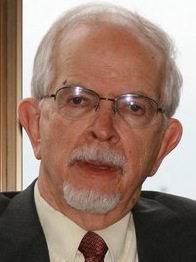That deferral began to change when Palestinian Christians challenged these churches to denounce and attack Israel's occupation with the non-violent campaign, Boycott, Divestment Sanctions (BDS).
BDS began with a call by Palestinian civil society to pursue the same sort of non violence action that earlier worked in the US civil rights movement, and in the anti-apartheid movement in South Africa.
Some critics have objected (in good deferral style) to lumping BDS into a single assignment. Never mind about that, individuals, institutions and nations can all boycott and divest. Sanctions are the tactic of nations against nations (e.g., Russia and Iran).
The important thing to remember for those who want a way to fight back, non-violently, against an illegal, brutal occupation, is that each institution and each individual has a weapon of choice.
U.S. institutional church bodies have chosen the divestment route, debating proposals to remove church retirement and other fund investments from U.S. companies that continue to conduct business within illegally occupied Palestinian territories.
And yes, the impact of divestment on major businesses is less against the bottom line of the affected companies, and far, far more against the public image of the company and, in this instance, the state of Israel.
Is Israel worried about its public image? Is the Pope a Catholic? Just look at the desperate way in which Israel and its allies are spending big dollars to fight the BDS campaigns. Even Sheldon Adelson has gotten into the act.
Palestine's dream of freedom has been deferred far too long. It is time now to "conquer" Israel, not on the battlefield, but in the war that hits Israel where it hurts, in the world of public opinion.
Conquer is the right word.
In the rarely heard fourth verse of the Star Spangled Banner, Francis Scott Key wrote, "Then conquer we must, when our cause it is just, and this be our motto: 'In God is our trust.'"
Key's poem, which became our national anthem in 1931, was written after a British flotilla attempted to capture the port of Baltimore, a battle that culminated in the bombardment of Fort McHenry throughout the night of September 13, 1814.
In that context, "conquer we must" referred to "conquer" not as the act of an established nation at war with a neighbor, but as the challenges a new nation faced.
Or, on a more personal note, the word "conquer" to my mother, meant to "rise above" a barrier, in order to overcome it. How many times did she tell me, "you can conquer this"? I lost count at age 14.
Art, like the poetry of Langston Hughes, can inform us that dreams too long deferred, will wither up like "a raisin in the sun," or maybe simply "explode".
Dreams are deferred by barriers, like those legal barriers established by American segregationists or by Israeli occupiers who employ periodic acts of "mowing the grass," routine night raids into Palestinian homes, and armed checkpoints for a single purpose, to maintain the status quo for those in power.
It is time to fight against that oppression with whatever weapons we have in hand. Later this month, those three U.S. Christian denominations -- United Church of Christ, Episcopalian, and Mennonite -- will decide whether or not to seize the BDS weapon to fight against injustice.
(Note: You can view every article as one long page if you sign up as an Advocate Member, or higher).





